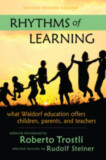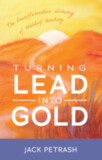Rudolf Steiner
Introduction by René M. Querido
Translated by Nancy Parsons Whittaker, Robert F. Lathe and Roland Everett
Introduction by René M. Querido
Translated by Nancy Parsons Whittaker, Robert F. Lathe and Roland Everett
Paperback
October 1996
9781621483700
More details
- Publisher
SteinerBooks - Published
1st October 1996 - ISBN 9781621483700
- Language English
- Pages 264 pp.
- Size 5.5" x 8.5"
$24.95
12 lectures, various cities, November 19, 1922-August 30, 1924 (CW 304a)
The Waldorf school movement was gaining increasing recognition by the time these public lectures on Waldorf education took place. In this collection, as in the previous volume, Rudolf Steiner is outspoken about the spiritual nature of human beings and the world—including the spiritual nature of Waldorf education.
Original German source: Anthroposophische Menschenkunde und Pädagogik (GA 304a).
T O P I C S:
- Education and teaching
- The art of teaching and understanding the human being
- Education and art
- Education and the moral life
- Eurythmy performance
- Why rducation is based on Anthroposophy
- Waldorf pedagogy
- Anthroposophy and education
- Moral and physical Education
- and more...
Rudolf Steiner
Rudolf Steiner (b. Rudolf Joseph Lorenz Steiner, 1861–1925) was born in the small village of Kraljevec, Austro-Hungarian Empire (now in Croatia), where he grew up. As a young man, he lived in Weimar and Berlin, where he became a well-published scientific, literary, and philosophical scholar, known especially for his work with Goethe’s scientific writings. Steiner termed his spiritual philosophy anthroposophy, meaning “wisdom of the human being.” As an exceptionally developed seer, he based his work on direct knowledge and perception of spiritual dimensions. He initiated a modern, universal “spiritual science” that is accessible to anyone willing to exercise clear and unbiased thinking. From his spiritual investigations, Steiner provided suggestions for the renewal of numerous activities, including education (general and for special needs), agriculture, medicine, economics, architecture, science, philosophy, Christianity, and the arts. There are currently thousands of schools, clinics, farms, and initiatives in other fields that involve practical work based on the principles Steiner developed. His many published works feature his research into the spiritual nature of human beings, the evolution of the world and humanity, and methods for personal development. He wrote some thirty books and delivered more than six thousand lectures throughout much of Europe. In 1924, Steiner founded the General Anthroposophical Society, which today has branches around the world.








